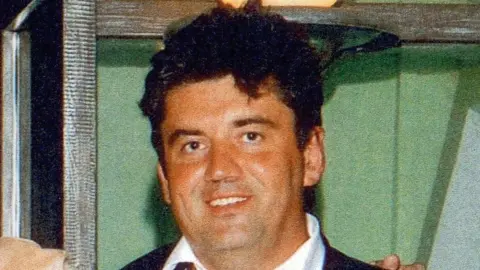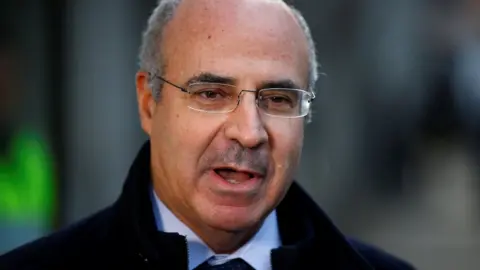Alexander Perepilichnyy died of natural causes, coroner rules
 BBC
BBCThe death of a Russian businessman who collapsed while running near his Surrey home in 2012 was down to natural causes, a coroner has ruled.
Alexander Perepilichnyy is thought to have suffered sudden arrhythmic death syndrome, the Old Bailey inquest heard.
The 44-year-old millionaire had been helping to expose alleged organised crime in Russia.
Coroner Nicholas Hilliard QC discounted claims he was poisoned and said there was "no direct evidence" of murder.
He ruled Mr Perepilichnyy died of sudden arrhythmic death syndrome - or Sads - a heart condition which claims between 800 and 1,500 lives in the UK each year.
Giving a narrative verdict, the coroner said: "I do not think I can completely eliminate all possibility he was poisoned, although I regard it unlikely on all the evidence I have heard...
"I'm satisfied that I can properly and safely conclude that it is more likely than not he had died from natural causes."
'Police incompetence'
The inquest heard Mr Perepilichnyy gave his occupation as an industrialist and was worth more than £50m.
He moved to the UK with his family in 2010 after a spell in Switzerland and was living on the exclusive St George's Hill estate in Weybridge.
He may have suffered from food poisoning while on a trip to Paris with an ex-girlfriend in the days before his death on 10 November 2012, but the coroner said this was not a contributory factor.
Mr Hilliard said the death was not initially treated as suspicious by police at the scene because no-one reported any ill effects or concerns.
As a result there was a "significant lost opportunity" for police to investigate.
 Reuters
ReutersA forensic post-mortem examination did not take place until 18 days after Mr Perepilichnyy died and his stomach contents were thrown away before it could be tested for poison.
Mr Hilliard said there was also only a "limited search of the scene so any potentially incriminating evidence was missed".
But the coroner rejected the possibility secret intelligence could hold clues to his death, saying that while he had seen sensitive information related to the case, none of it added to the evidence heard in open court.
The inquest heard Mr Perepilichnyy had faced threats in the months before his death and had taken out millions of pounds in life insurance.
He had been helping anti-corruption campaigner Bill Browder, who runs investment company Hermitage Capital Management, expose a $230m (£180m) money-laundering scheme.
Speaking after the verdict, Mr Browder said: "The judge was working on a puzzle with only 20% of the pieces because of the Surrey Police incompetence in investigating."
Det Ch Supt John Boshier accepted "organisational failings were made in the early stage" but said the verdict supported the conclusion reached by his officers in 2013.
He said: "No evidence of third-party involvement in Mr Perepilichnyy's death was found."
The coroner said he received a letter from the Metropolitan Police counter-terrorism unit saying they are "not conducting an investigation into Mr Perepilichnyy's death" at the hands of a "hostile" agent.

The questions raised by the inquest
By Duncan Leatherdale, BBC News
Courtroom two at the Old Bailey erupted with laughter, for pharmacologist Robin Ferner had just hit the nail on the head.
"Clarity," he told the 15th and penultimate day of the inquest, "is not something that is manifest in the case."
It was something of an understatement.
Since Alexander Perepilichnyy's death in 2012, questions and speculation have raged.
Was it a natural death? Or was he poisoned because of his status as a whistleblower helping expose a multi-million pound fraud in Russia?
Clarity is what Coroner Nicholas Hilliard QC was seeking.

